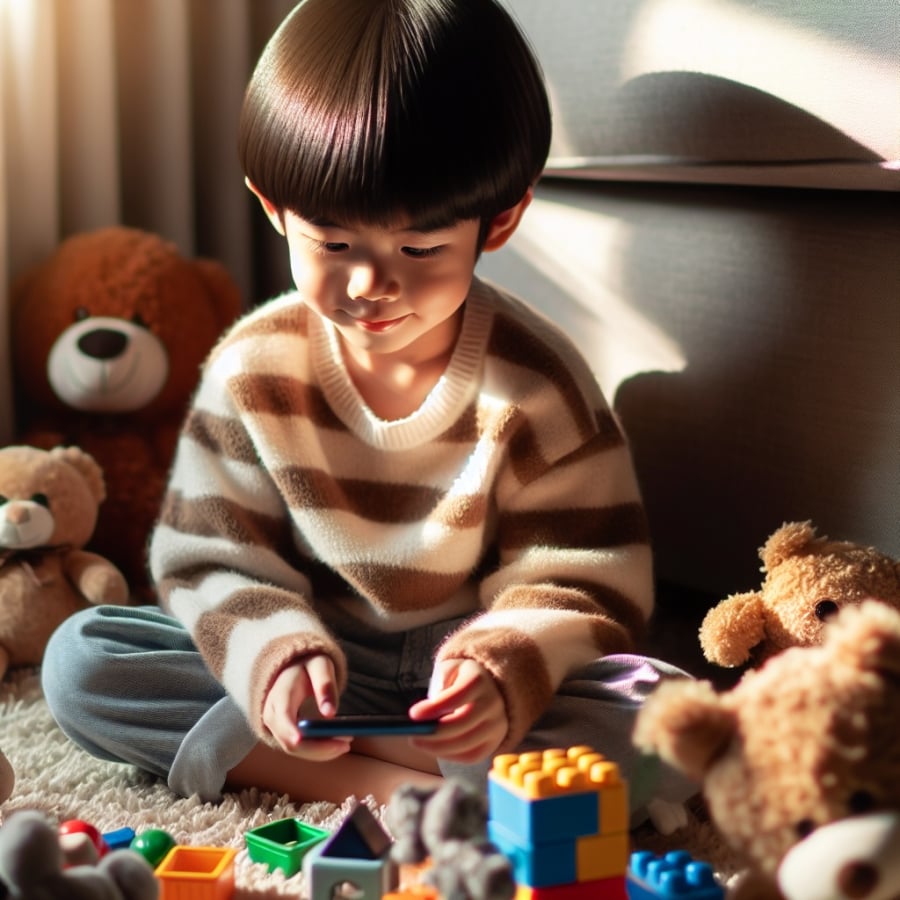Children often talk to themselves, saying meaningless things
Some children enjoy talking to others and expressing their opinions about things they encounter. When there are no people around, the child may mutter to themselves, saying meaningless things. Parents may find it difficult to understand and even prevent the child from talking to themselves. Some parents may even be afraid that their child has a brain problem, which is why they act so strangely.
In fact, the fact that children talk to themselves shows strong language expression skills. Children can come up with situations and put themselves in those situations. For example, when they play alone at home, children hold two toys in their hands and create a conversation between them.
This is normal, so parents do not need to worry too much. As they grow older, children will not act like this anymore.
In addition to expressive skills, these children also have different thinking abilities, know how to have fun, and are not affected by psychological issues such as loneliness. They know how to regulate their own emotions.
On the other hand, children who are happy when playing with their friends may become anxious and stressed when they are alone, often vulnerable to psychological damage.

Silent children
There are some children who speak very little when they are young. When their parents take them out to meet acquaintances and ask the child to greet them, the child remains silent. This makes the atmosphere awkward and difficult to handle. Even though parents remind them, the next time they meet, the child remains silent.
This makes parents worried about their child’s future difficulties. However, the inner world of these children is very rich, not as foolish as adults think.
In addition, they act cautiously and do not easily get excited when faced with problems. With this type of personality, children will be very determined with each step of their development and will not deviate due to unexpected events.

A stubborn child
Many parents are frustrated when talking about their children. For example, when the child is stubborn and does not listen. When guests come to the house, the parents expect the child to play with the guests, but the child refuses and only wants to go back to their room to play or do their own thing. This makes the atmosphere difficult, and parents hesitate to interact with the guests and think that the child is behaving poorly.
But in fact, children like this are often determined, believe in their own decisions and actions. When the child believes they are right, they will persist, making it easier for them to achieve success.
There are also children who always seem obedient, almost without their own thoughts, and parents wonder why they behave like that. However, children like this when they grow up, do not know which direction to go, often follow or easily accept the opinions of others.
That is why a stubborn child is not necessarily bad.
Mothers’ Need for Awareness of Dual Activity of Breastfeeding and Watching TV
In the contemporary world, in which technology pervades our lives, some mothers tend to soothe their babies through nursing while simultaneously watching television. Although this practice may not appear to affect the infant, studies show that it can in fact have dire repercussions on the baby’s well-being, both in terms of physical health and mental growth. In this article, we will look at the possible reasons for this activity and its potential outcomes.





































